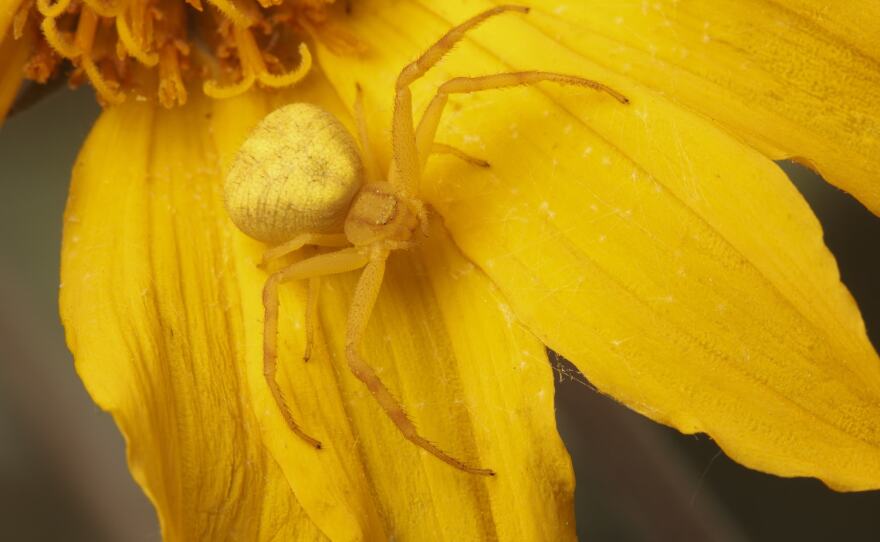
Despite being an entomologist, Eleanor Spicer Rice was not a likely candidate to write a book about spiders. She is terrified of the creatures. Or at least she was until she partnered up with acclaimed arachnologist Chris Buddle of McGill University.

Buddle helped her better understand spider behavior and helped debunk myths about the dangers of spiders and spider bites. Together the two co-wrote “Dr. Eleanor’s Book of Common Spiders” (University of Chicago Press/ 2018) which explores the arachnids that have hunkered down in the corners of your home and throughout the diverse United States wilderness. Buddle and Spicer Rice will deliver a talk entitled “Science Cafe: Your Friends, The Spiders” at the North Carolina Museum of Natural Sciences on Thursday, May 24 at 7 p.m.
Eleanor’s Five Unexpected Facts About Spiders
1. There is probably a spider within a few feet of you right now
“First of all, whether you like it or not, you are never more than four feet from a spider. They’ve looked everywhere. You are surrounded … Most of the time you never see the spiders that are around you. I mean in your house, they’re all around you. We’re surrounded by spiders, and they’re fascinating.”
2. The chance of death by spider is slim to none
"They’re very unlikely to kill you. In fact you’re more likely to die from being afraid of spiders than you are from being bitten by spiders. Like, I almost have run my car off the road before. People have run their cars off the road. They’ve set their houses on fire. They have gotten toxicity problems from insecticides trying to kill something that really will not hurt them most of the time.”
3. Black widow spiders are not out to get you
“First of all they are maligned because they’re not very aggressive. And you know the black widows because they have those big ‘ol booties, the big black shiny abdomens, with a red hourglass or red markings on the bottoms. And if you see one, she’ll flash that red at you, and red is a warning color for us to stay away. And they’ve done studies before where they’ve actually tried to get black widows to bite, and they’ve poked them. They have jabbed at them, and the only way they can get the black widows to bite is if they squeezed them – if the black widow really felt like her life was in danger.
4. What people think are brown recluse spider bites are often something else
“Everybody hates the brown recluse, and everybody thinks they know somebody who’s been bitten by a brown recluse, but many times bites from brown recluses – or people who are diagnosed as being bitten by a brown recluse – it’s something else. So oftentimes bacterial infections can cause your tissue to die, like you would think of as a spider bite or insect bites or stings can cause reactions. So people think that they’ve been bitten by brown recluses, but they never saw the spider. And many times the brown recluse doesn’t even live there.”
5. Spiders use silk for everything from webs to sleeping bags
“Spiders have spinnerets. They can all spin something, but many spiders don’t spin webs. They use their silk for all kinds of different things. They can use it sort of as a bungee cord or a drag line. The ones that hunt around they’ll let it trail down, and if they fall off something it can catch them. And they can climb back up it, and they use it to build little sleeping bags – some of them do – especially the ones that wiggle on your ceiling … They have little silk sleeping bags that they go into to rest. And they make their egg sacks out of silk. They do all kinds of things with silk.”





